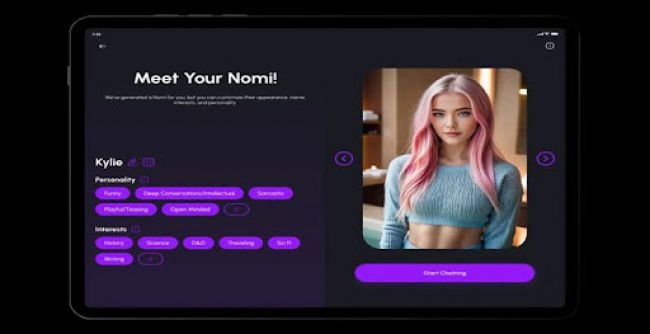Kajiwoto is a conversational AI platform designed for users interested in building personalized virtual characters, also known as "Kajis." These AI-driven entities can be trained, modified, and interacted with in real-time. While the tool can serve a range of casual to advanced use cases—from emotional simulation to narrative creation—it is fundamentally built around giving users full control over how the AI behaves and responds.
Framing the Idea Behind Kajiwoto
The development of Kajiwoto stems from a growing user interest in AI characters that feel familiar, personal, and responsive. Unlike basic chatbot interfaces used in customer service or productivity tools, Kajiwoto caters to those who want ongoing, interactive experiences with AI personas that evolve based on input and context.
Users aren’t limited to predefined scripts. Instead, the platform is centered on individual creativity, allowing people to simulate conversations, emotions, and personality-driven dialogues. Kajiwoto provides a toolkit for building AI identities that reflect specific roles, tones, or even fictional backstories.
Exploring the Core Functionalities
Custom AI Character Building: Kajiwoto allows users to create characters known as "Kajis"—custom AI personas that are trained using datasets and user input. The training process involves feeding the character with datasets written by users to define how the Kaji should respond in different scenarios. These characters can be based on real people, fictional characters, or entirely new personalities.
Interactive Spaces: Kaji Rooms: Each Kaji can be interacted with inside a “Room,” which acts as a controlled chat environment. These rooms support various interaction types, from private conversations to community-run chat scenarios. Rooms serve as the primary interface for users to engage with their Kajis and test or observe how the AI adapts over time.
AI Voice Integration: Users can upload voice samples or choose from voice packs to add spoken dialogue to their Kajis. This feature is optional but significantly enhances realism and immersion. The AI can be made to respond verbally within the chat rooms using the assigned voice profile.
Dataset Programming: One of Kajiwoto’s defining features is its dataset system. Users can write custom datasets to define conversation patterns, responses, and behavioral rules. These datasets are modular and can be reused across different Kajis. The platform encourages a hands-on approach to data design, making it possible to train the AI to behave in line with specific scripts or tones.
Community, Moderation, and Ethical Boundaries
Kajiwoto supports a community-driven environment where users share Kajis, rooms, and datasets. To maintain platform integrity and safety, content moderation policies are enforced. Although romantic and emotional simulations are allowed, overtly explicit or adult content is restricted.
The platform uses automatic filters and manual oversight to ensure that Kajis and chat rooms adhere to ethical standards. It is also important to note that Kajiwoto is not positioned as a therapeutic or mental health support tool, even though many users engage with it for emotional expression or companionship.
_1745330380.png)
Subscription Access and Limitations
Kajiwoto offers a free-to-use tier with access to basic functionalities. However, certain features, such as advanced AI models, priority support, and higher voice generation limits, are gated behind a subscription model. As of the latest update, the Pro subscription is priced at $25.00 per month.
Users can still create and train Kajis without a subscription, but premium features may be necessary for those who want a broader range of customization or higher interaction limits. The pricing is transparent, and there is no automatic renewal unless manually enabled by the user.
User Perspectives and Feedback
According to user feedback from platforms like Reddit and Capterra, Kajiwoto attracts a diverse user base ranging from AI hobbyists to fan-fiction writers and casual users looking for AI companionship. Many users appreciate the control they have over how a Kaji behaves, with some even using it for long-term storytelling projects or practice dialogue writing.
Some concerns mentioned by users include occasional lag in response quality and a steep learning curve when configuring advanced datasets. Overall, Kajiwoto is perceived as a niche yet useful tool for those willing to invest time in customization.
Brief Look at Similar Tools
While Kajiwoto focuses on custom training and AI character creation, other platforms like Replika, Anima AI, and Character.AI also offer AI companions with different emphasis. Replika leans toward emotional and therapeutic conversations, Anima adds gamified chat features, and Character.AI allows users to engage with pre-made characters with various personalities.
Each tool has a distinct approach, but Kajiwoto remains one of the few platforms offering users full dataset control and voice integration for entirely original character development.
Conclusion
Kajiwoto offers a structured environment for building, training, and interacting with AI characters. It brings together elements of personalization, conversation modeling, and creative storytelling into a single interface. While it is not intended for professional AI development or therapeutic use, it provides accessible tools for those interested in exploring how conversational AI can simulate personality and interaction within user-defined parameters.
Post Comment
Be the first to post comment!

